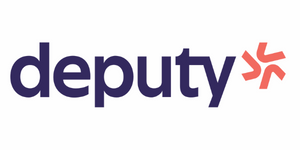- The nature of work is changing fast, and today’s talent isn’t interested in spending their whole career at one company.
- Rapid advances in technology, workforce demographics and required skill sets have made it necessary to rethink how we structure our organizations.
- These 8 talent management strategies will help business owners prepare their teams for the future of work.
This guest post was written by Derek Jones, VP Enterprise Strategy for Deputy, a global workforce management platform.
As the Fourth Industrial Revolution (4IR) continues to disrupt many industries with artificial intelligence (AI), robotic process automation (RPA) and machine learning (ML), the nature of work as we know it is changing very fast. Furthermore, unlike previous generations, today’s talent (especially millennials) isn’t interested in spending their whole career at one company.
Such rapid advances in technology, coupled with such significant changes in workforce demographics and required skill sets, have made it necessary for us to rethink everything. From how we structure our organizations to how we define the concept of work itself.
Environmental factors are also accelerating the arrival of the future of work. The COVID-19 pandemic, for example, has forced companies all over the world to start looking at remote working capability as a critical HR necessity instead of a nice-to-have option/perk.
What talent management strategies do you need to prepare for the future of work?
1. Work filled with purpose
In the future, the best talent will only want to work for companies that have a clear purpose. As more and more tasks become automated by 4IR technologies, only organizations with a clear purpose will attract the best talent by offering employees a deeper reason for being and real, meaningful work.
In fact, Mercer’s recent 2020 Global Talent Trends report found that 75 percent of thriving employees say their company has a strong sense of purpose that resonates with their personal values. For managers, this means ensuring that employees feel fulfilled by their jobs. It also calls for a company mission, vision, strategy and value proposition that is clear, compelling, authentic and transparent.
2. Digital right from the core
The future of work demands truly digital workspaces. This means that digital strategy must be part of everyone’s mandate from IT to HR to marketing to C-suite, not just for the Chief Digital Officer.
Digital must be infused into the company’s culture. Things like virtual team meetings, cloud document sharing, and project management/collaboration apps should be the norm rather than the exception.
Managers will also need better, easier HR tech. The human capital management (HCM) tools for the future of work need to be enhanced with AI and ML so that they are predictive and competency-centric.
3. A compelling employer brand
In the future, companies will have to compete for talent as hard as today’s talent competes for jobs. This will require organizations to set themselves apart in the marketplace with a compelling employer brand.
Managers will need to work towards establishing a reputation for their organizations that is consistent with the company culture and employee experience across all departments: marketing, sales, IT, etc.
The company of the future will have to refine and showcase its organizational culture by aligning and actively managing its brand internally and externally in order to attract and retain the best talent.
4. A new breed of leadership
The future of work demands new leadership. The workers of the future will be able to spot poor leaders much quicker and as explained above, they won’t be willing to tolerate them for the sake of job security.
Leadership will no longer be about throwing titles around. Instead, it will be about being able to create a coherent vision, articulate it to the rest of the team, and create the right environment for it to emerge.
The best leaders will therefore have to be good at:
- exemplifying the behaviors they expect,
- aligning remote, blended, fluid teams,
- enabling localized decision making and,
- virtual communication (where body language is diminished and physical contact is eliminated).
5. Outsourcing (both to humans and machines)
Managers will have to be able to figure out which work tasks they can reorganize into freelance projects, gigs and assignments to be worked on by blended teams of both internal and external talent.
Managers will also need to figure out the best way to implement the best technology for the future of work such as robots, chatbots, AI, and predictive analytics with the aim of enriching their employees’ work.
6. Harnessing the power of Virtual Reality
As virtual collaboration and remote working become the mainstream ways of working, virtual reality (VR) will be one of the most important workspace tech tools. Managers will have to be able to tap into its potential to provide real-time interactive, collaborative training. In fact, research shows that almost three-quarters of SMBs will be experimenting with immersive technology by 2022.
Some of the key benefits of VR training include:
- Enhanced engagement – gamification elements can easily be integrated into the lessons
- More robust collaboration – employees in different locations can be in the same virtual space
- Data-led intelligence – VR technology is able to capture more and deeper data for evaluation
7. Prioritizing employee experience (EX)
Companies have been paying attention to user experience (UX) and customer experience (CX) for a long time. The future of work will usher in the age of employee experience (EX). Beyond offering meaningful work as earlier mentioned, this will require companies to fight career stagnation and role immobility.
Managers will need to make room for employees to move within the organization and find a new niche to reinvent their skillsets. It’s a great way to retain employees while growing and improving their skills.
With employees already choosing jobs based on the level of flexibility they offer and coronavirus forcing companies to adopt remote working, permanent flexibility will be the hallmark of the future workplace.
8. Agile management
Agile isn’t just for tech anymore. It’s been seeping into other business functions and now it’s changing how organizations approach HR. In a 2017 Deloitte survey, 79 percent of global executives rated agile performance management as a high organizational priority.
As companies adopt agile methods in their HR management, the annual performance review has to give way to frequent performance assessments (preferably project by project). Managers must also make more room for both peer-to-peer feedback and “upward” feedback from employees to team leaders.
And as far as compensation goes, managers will need to give bonuses for remarkable performance on the spot rather than waiting for the end of the year. Research and practice have shown that compensation works best as a motivator when it comes as soon as possible after the desired behavior.
Derek Jones spearheads key initiatives at Deputy, a global workforce management platform for employee scheduling, timesheets and communication. Deputy enables companies to manage remote teams accurately and efficiently with one easy-to-use platform, helping businesses and leaders simplify employment law compliance, keep labor cost in line and build award-winning workplaces.


















